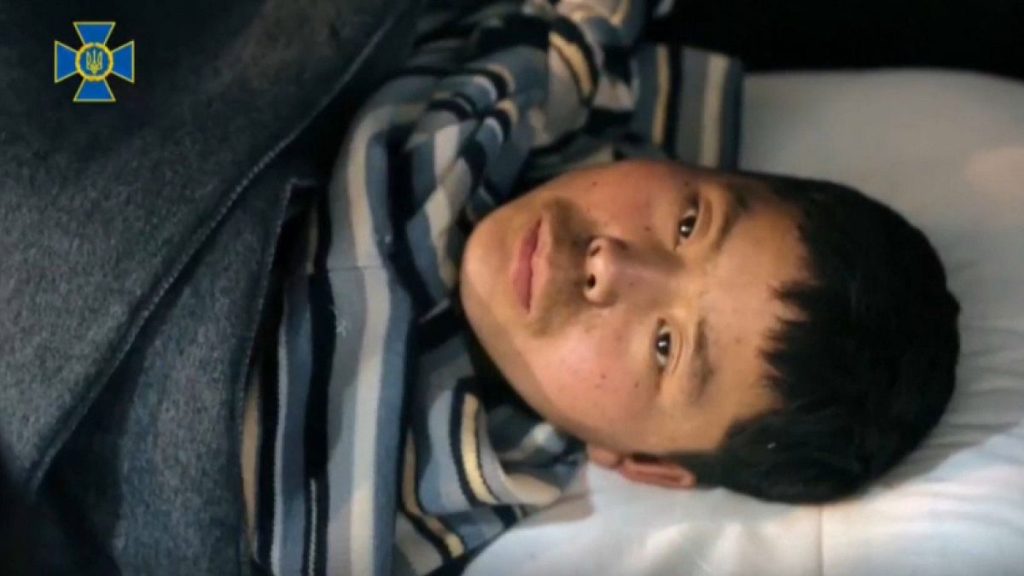The capture of two North Korean soldiers fighting alongside Russian forces in Ukraine’s Kursk region has ignited a new dimension in the ongoing conflict, providing concrete evidence of North Korea’s clandestine involvement in the war. The Security Service of Ukraine (SSU) confirmed the detention of the soldiers, emphasizing that their presence constitutes “indisputable evidence” of Pyongyang’s support for Russia’s military campaign. The captured soldiers, whose identities remain undisclosed, have been transported to Kyiv for interrogation, with South Korean interpreters facilitating communication due to the language barrier. Ukrainian authorities have assured that the detainees are being treated in accordance with international law and are receiving necessary medical care. One of the soldiers was found to possess a Russian military identification card issued under a false name registered in the Republic of Tuva, further highlighting the efforts to conceal North Korean participation in the conflict.
Ukrainian President Volodymyr Zelenskyy confirmed the capture and ongoing interrogation of the North Korean soldiers, highlighting the challenges faced by Ukrainian forces in apprehending them. He alleged that Russian and North Korean forces have engaged in a concerted effort to obscure the presence of North Korean troops, including resorting to the drastic measure of eliminating wounded comrades to prevent their capture and subsequent interrogation by Ukrainian authorities. Zelenskyy underscored that the presence of North Korean soldiers serves as compelling evidence of Russia’s determination to prolong and escalate the war, further implicating Pyongyang in the conflict’s perpetuation. While North Korea has yet to officially acknowledge the capture or its involvement in the war, the incident marks a significant development in understanding the complex web of international actors engaged in the Ukrainian conflict.
This revelation follows previous reports of North Korean military involvement in the war. A senior Ukrainian military official estimated last month that approximately 200 North Korean troops fighting alongside Russian forces in Kursk had been killed or wounded. This estimate provided the first significant insight into North Korean casualties, corroborating earlier claims that Pyongyang had dispatched between 10,000 and 12,000 troops to bolster Russia’s war effort. Both the White House and the Pentagon confirmed the presence of North Korean forces on the front lines, primarily serving in infantry roles, fighting alongside Russian units and, in certain instances, operating independently in the Kursk region. The capture of these two soldiers provides irrefutable proof of these earlier reports and further cements North Korea’s role in the conflict.
Beyond the capture of North Korean soldiers, the ongoing conflict continues to escalate with cross-border attacks and escalating sanctions. Ukrainian drones targeted apartment blocks in Russia’s western Tambov province, causing damage and reported injuries, signifying the widening impact of the war beyond the immediate conflict zone. Simultaneously, Russia’s defense ministry reported downing 85 Ukrainian drones, primarily targeting southern and western regions, while Ukraine’s air force countered that Russia had deployed 74 drones in overnight attacks. This exchange of drone attacks underscores the increasing reliance on unmanned aerial vehicles in the conflict and the escalating nature of the cross-border hostilities.
In response to Russia’s actions and ongoing aggression in Ukraine, the United States announced a new wave of sanctions targeting Russia’s vital energy sector. These sanctions focus on more than 180 oil-carrying vessels suspected of participating in a “shadow fleet” employed by the Kremlin to circumvent existing oil sanctions. Furthermore, the sanctions target Russian energy giants, traders, oil field service companies, and energy officials, with several of the targeted vessels also implicated in transporting sanctioned Iranian oil. President Zelenskyy lauded the US sanctions, emphasizing their importance in impacting Putin’s financial resources and holding him accountable for the war’s economic consequences. Russia’s Foreign Ministry, in response, issued a warning that the sanctions will not go unanswered, hinting at potential retaliatory measures without specifying their nature. This escalation of sanctions and the anticipated Russian response further contribute to the growing tensions in the broader geopolitical context.
In summary, the capture of the North Korean soldiers serves as a stark reminder of the complex and evolving nature of the war in Ukraine, with international actors playing increasingly overt roles in the conflict. The incident highlights the clandestine support provided by North Korea to Russia’s war effort, adding another layer of complexity to the geopolitical dynamics at play. Coupled with the escalating cross-border attacks, the ongoing drone warfare, and the imposition of new sanctions on Russia’s energy sector, the situation underscores the volatile and unpredictable trajectory of the conflict, with potential for further escalation and international repercussions. The international community faces the challenge of addressing these developments and seeking pathways towards de-escalation and a peaceful resolution to the ongoing crisis.

